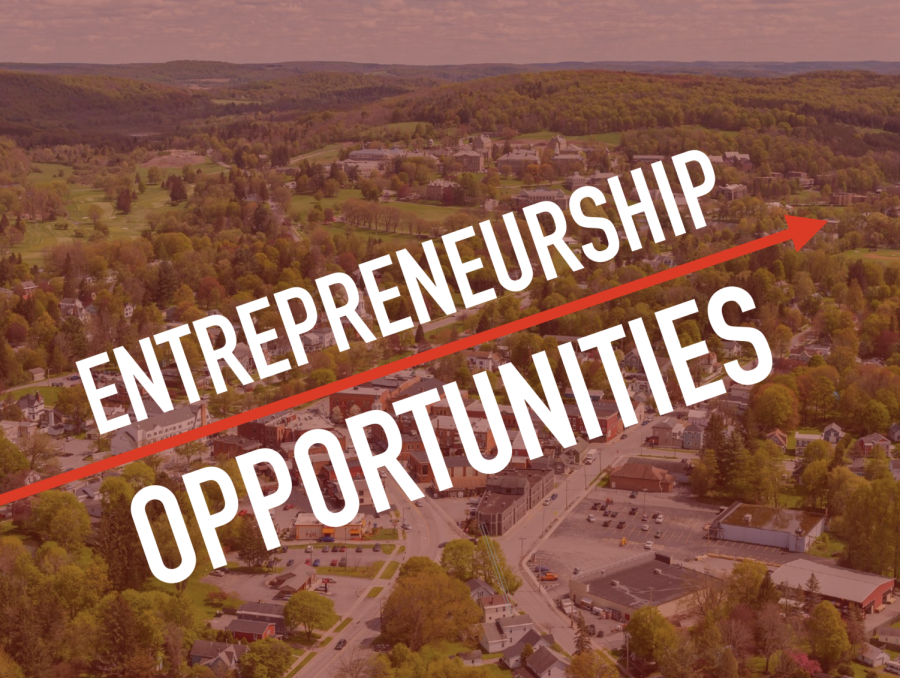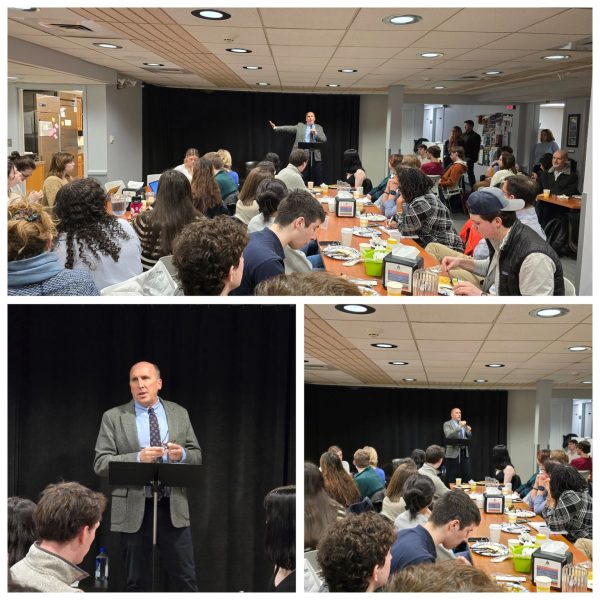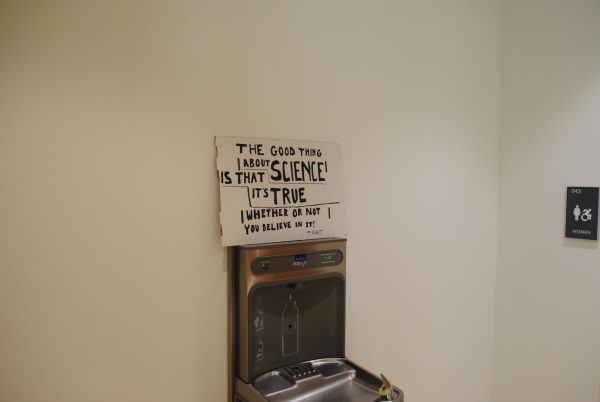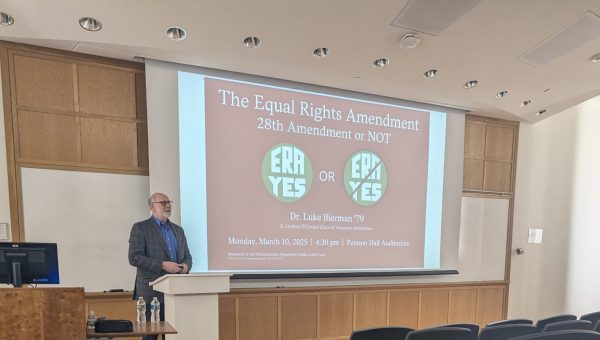New SGA and TIA Grants Expand Student Entrepreneurship Opportunities
Being a leader at Colgate is encouraged more than ever with the development of expansion grants from Thought into Action (TIA) and SGA’s new Gate Grants initiative.
Seniors Shane Knopp and Parna Shakouri, SGA president and vice president respectively, are looking for students with ideas to improve the Colgate community as part of their new initiative, Gate Grants.
“Gate Grants is a new initiative by the Student Government Association to fund student-led projects that aim to enrich and benefit the student body and the larger Colgate community in meaningful ways,” Shakouri said.
If a student has a project idea, they can apply for a Gate Grant. The application is currently open and will close Nov. 28, according to the Gate Grants Guiding Document sent in an Oct. 17 email from SGA.
“The application process involves some short responses about the purpose of your idea and how it impacts the student body, information about a faculty/staff advisor, and a budget outline,” Shakouri said. “All current students are welcome and encouraged to apply regardless of class year and student organization affiliation.”
Shakouri further explained some of the initiatives SGA has taken on this year with their budget besides Gate Grants.
“Some of our initiatives so far have included the renovation of the Harlem Renaissance Center, the refurbishing of the Rainbow Room, the purchasing of a van for COVE and more recently the purchasing of two new pianos for the Music Department and now Gate Grants,” Shakouri said.
The leaders want to hear from their peers about how to enrich and improve Colgate.
“What’s unique about Gate Grants is that it is open and accessible to any member of the student body and was purposely structured as an initiative where we not only hear from our peers but empower them to directly have an impact on the campus community and the future of Colgate,” Shakouri said.
The budget for a student-led project can be up to $3,500; however, this budget cannot be used to fund an event or a for-profit business, according to the Gate Grants Guiding Document. Students should apply using the Google Form on the Gate Grants Guiding Document.
Knopp wants to ensure students understand the difference between Gate Grants and Thought into Action (TIA).
“Thought Into Action (TIA) is an entrepreneurship and innovation incubator for developing businesses, nonprofits, products and services with guidance and financing from experienced entrepreneurs,” Knopp said. “The Gate Grants, however, is completely student-led and allows for students to choose their own faculty/staff sponsor. Gate Grants does not have a built-in mentorship element and while the Student Government Association will oversee the successful implementation of each project, students will be independent in fully executing their idea.”
Colgate’s Entrepreneurship and Innovation program, Thought Into Action (TIA), is a yearlong program to aid students who have a business or non-profit idea. The program recently announced new opportunities for grants as well. Carolyn Strobel-Larsen, director of entrepreneurship and innovation programs, explained how TIA is expanding for aspiring entrepreneurs.
“It used to be that students could receive $500-$1000 for their ideas and business building. Now, there is an expansion grant, which is up to $2,500,” Strobel-Larsen said.
Strobel-Larsen explained there are now two defined grants for business ventures: an exploration grant and an expansion grant.
“Startups can apply and usually receive a $500 exploration grant. This grant is for initial idea development. They can put the funding towards testing and finding test users — prototyping. The new grant [which businesses] can apply for is $2,000. This can be used to create the product or service” Strobel-Larsen explained.
Along with the new expansion grant, TIA is working on making the grant application process more straightforward.
“Getting grants used to be a more complicated process and there was less money. With the announcement of the new grants, the process should be much quicker, and money should be more accessible so there are no barriers for teams needing that money,” Strobel-Larsen said.
Strobel-Larsen hopes that the new grants and application process will encourage students to apply to the incubator (TIA).
“We don’t want funding to be a barrier for students to create a business. Our goal is to make it more equitable to be an entrepreneur regardless of personal means,” Strobel-Larsen expressed.
Students have many opportunities to turn their ideas into realities with the implementation of Gate Grants and the new expansion grants from TIA. Additionally, students can participate in both TIA and Gate Grants.
“Since there is no relationship between TIA and Gate Grants, students are able to utilize both. However, we want to note that Gate Grants cannot be used to provide additional resources to already funded projects, including TIA initiatives,” Knopp said.
With new business ideas, junior Shafi Islam is thinking about applying to these grants.
“I feel so excited to embark on these opportunities. I’m really grateful that Colgate provides avenues for exploration as a student. I’ve got a lot of different ideas for personal businesses and Colgate stuff. So maybe I will apply to one or both grants,” Islam said.

Payton Gore is a senior from Baltimore, MD concentrating in marine freshwater science with a minor in sociology. She has previously served as a staff writer...







